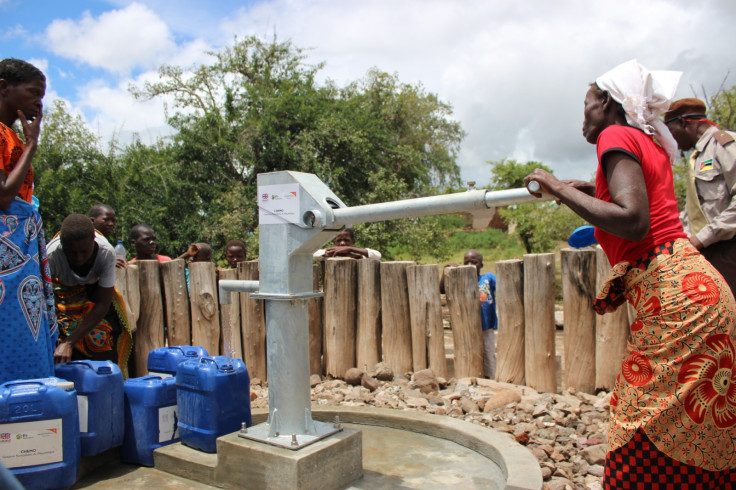Dirty rivers in drought-hit Mozambique kill as much as lack of food
IBTimes UK visits Changara district, where charity World Vision is assisting drought-hit communities.
Depleted harvests are not the only threat to the lives of vulnerable communities in drought-hit Mozambique, one of Africa's poorest countries. Lack of access to clean water and proper hygiene is affecting the lives of many people, who contract diseases and infections that impact them harder as their immune system is already weakened due to inadequate nutrition.
In the Changara district, in Tete province, people have died after drinking water from the nearby river, which is polluted.
"When communities do not have access to clean water, they face several problems such as the spread of diseases, including cholera. In some cases, people defecate in open sky and those faeces can infect the water people will then drink," Vania Ali, wash coordinator at charity World Vision, told IBTimes UK.
The NGO has given the community in Changara a water pump. People, who were also shown how to use water purifiers to clean containers they use to fetch water, will have to contribute a small amount to maintain the pump, which can prevent deaths.
However, access to clean water is not enough to prevent the spread of mortal diseases and ailments. "Hygene is very important and building latrines is essential," Ali continued.
The project is funded by the UK Government's Department for International Development (DfID).
The UK, which has spent around £59m ($73m) on Mozambique aid in the past year, also provided £32m for the drought fightback in the country to buy emergency life-saving food, water and shelter in the drought-affected communities.
Drought in Mozambique explained
- Nearly two million people are going hungry in Mozambique
- The drought is linked to the El Nino phenomenon, caused by warm water in the Pacific Ocean
- Communities in Tete province have been particularly impacted
- Two consecutive seasons of lack of rainfall have depleted harvests, meaning that families do not have staple foods such as maize and sorghum for their subsistence
More on drought in Mozambique
"As the world faces a number of unprecedented humanitarian crises this year, almost two million people in Mozambique are facing the daily threat of going without enough food and large numbers of children are malnourished due to a prolonged drought," DfID's Africa minister, James Wharton, told IBTimes UK.
"That is why the UK is leading the response. Tackling the global challenges of our time such as drought and disease which fuel migration, insecurity and instability is the right thing to do and is firmly in Britain's interest."
How access to clean water can reduce child abuse

A school in Changara is using theatre to teach pupils and the rest of the community about the importance of hygiene, good use of water and education.
"People become aware when they see demonstrations, they can relate and understand problems," Anabela Arnaldo, a first grade teacher at the school in Changara, told IBTimes UK.
Access to clean water – coupled with food distribution and training programmes on measures that can reduce the effects of the drought – not only prevent deaths, but also protect children from abuses including trafficking and child marriage.
"If a child has to walk miles to fetch water, they would not have time to go to school and this is a violation of their rights. Even things such as access to clean water can help prevent crimes against children," Simione Carlos Mhula, child protection manager at World Vision Mozambique, told IBTimes UK.
"We have so many cases of child marriages because lack of food," he continued. "We have situations where fathers say they go to the city to find jobs, but then they disappear. People approach mothers saying they can feed their children, but they want their daughters as brides in exchange."
IBTimes UK travelled to Mozambique courtesy of World Vision UK. Click here for more information about the charity's work in Mozambique.

© Copyright IBTimes 2024. All rights reserved.






